Menu
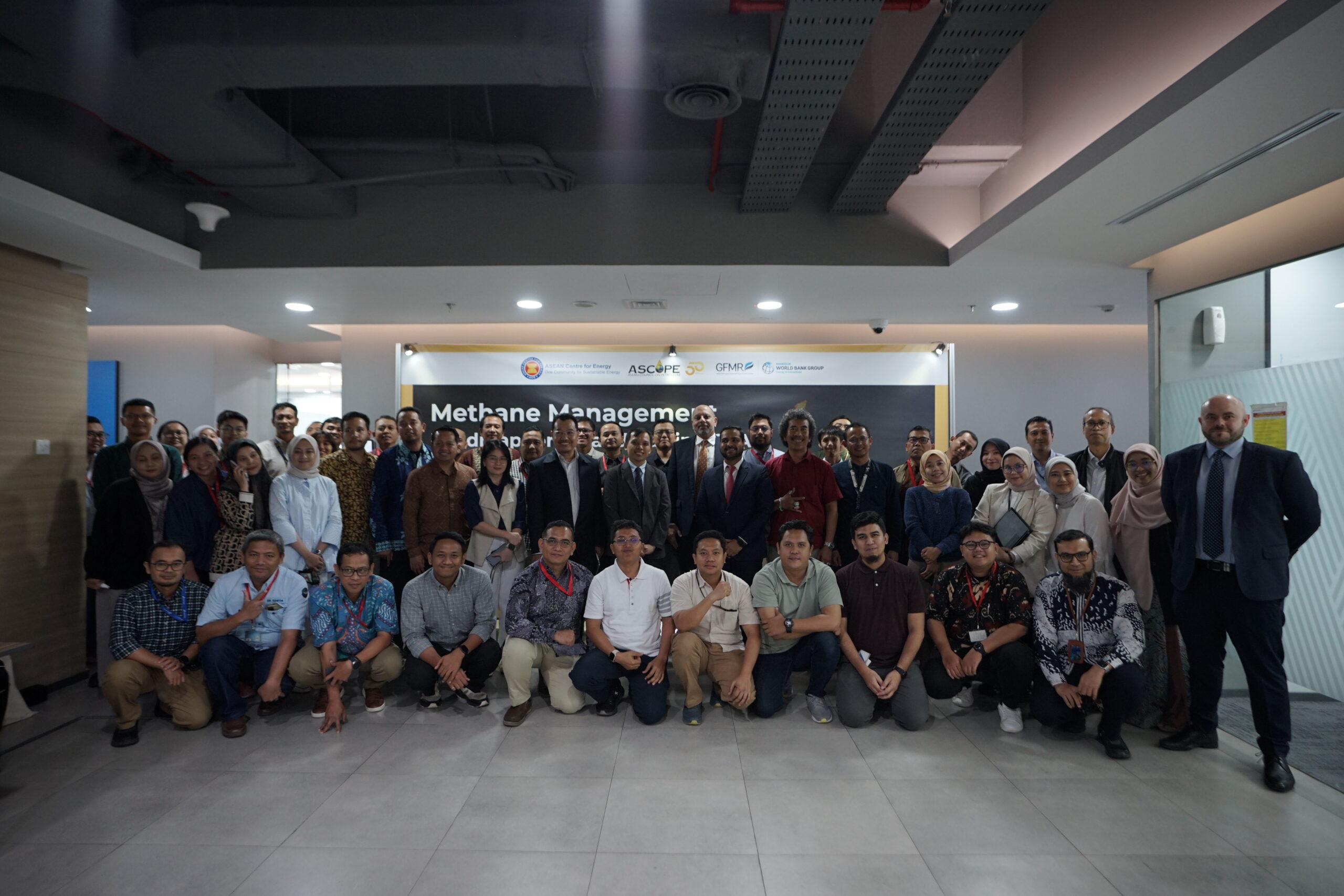
Photo 1. Group photo with ACE, World Bank, Pertamina, and participants of the launching event.
The ASEAN Centre for Energy (ACE) has officially launched the “Methane Management Roadmap for Oil and Gas in ASEAN” roadmap Report through a launching ceremony held in Jakarta, Indonesia, on Friday, 13 June 2025.
This report was co-authored by ACE and the ASEAN Council on Petroleum (ASCOPE), with support from the Global Flaring and Methane Reduction Partnership (GFMR) of the World Bank Group. Hosted by Pertamina, the event was attended by approximately 100 in-person and online participants, including representatives from the World Bank, Pertamina, ACE, and media personnel, aiming to disseminate the contents of the report and discuss crucial topics in ASEAN’s methane abatement strategies.
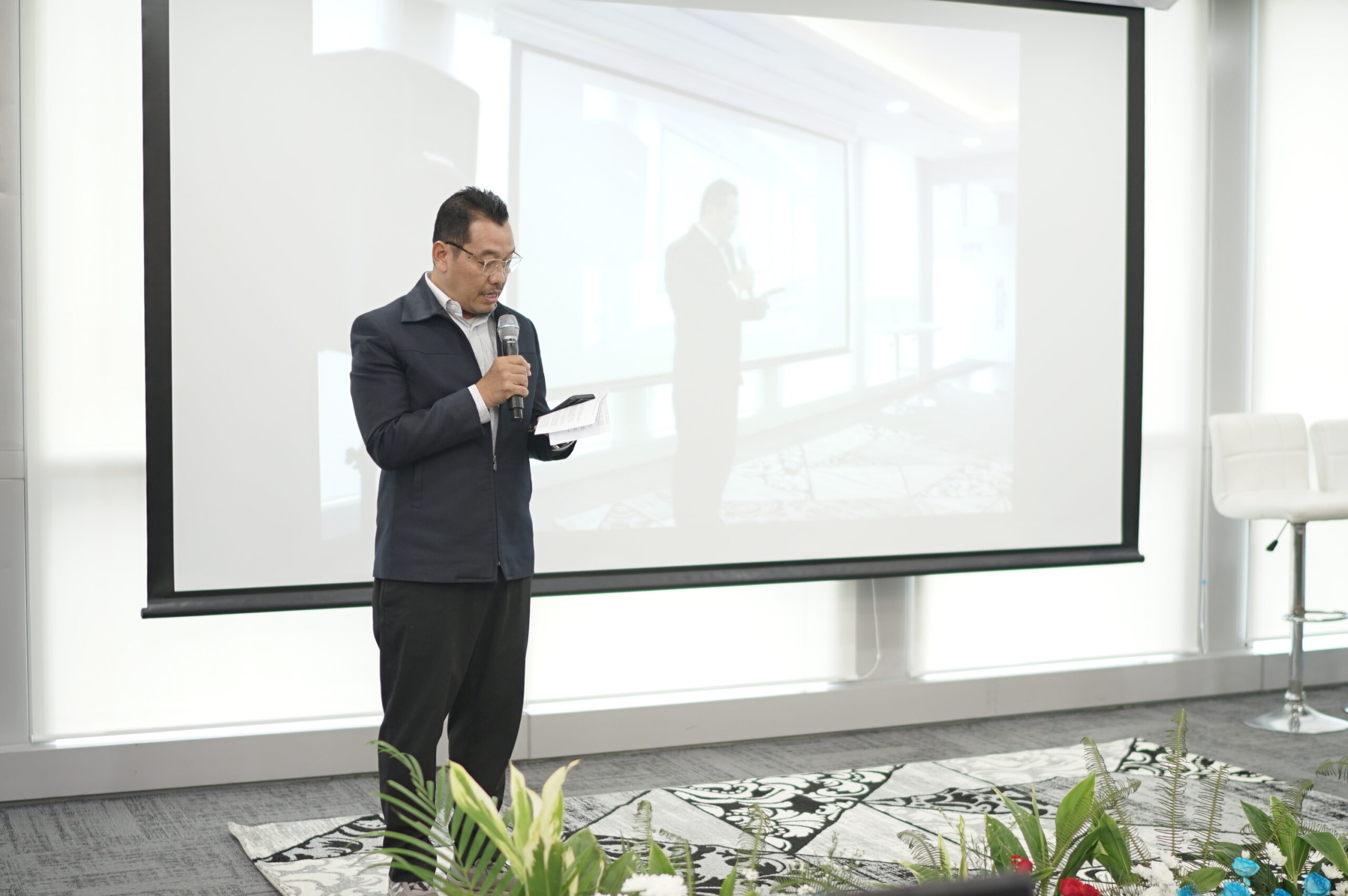 |
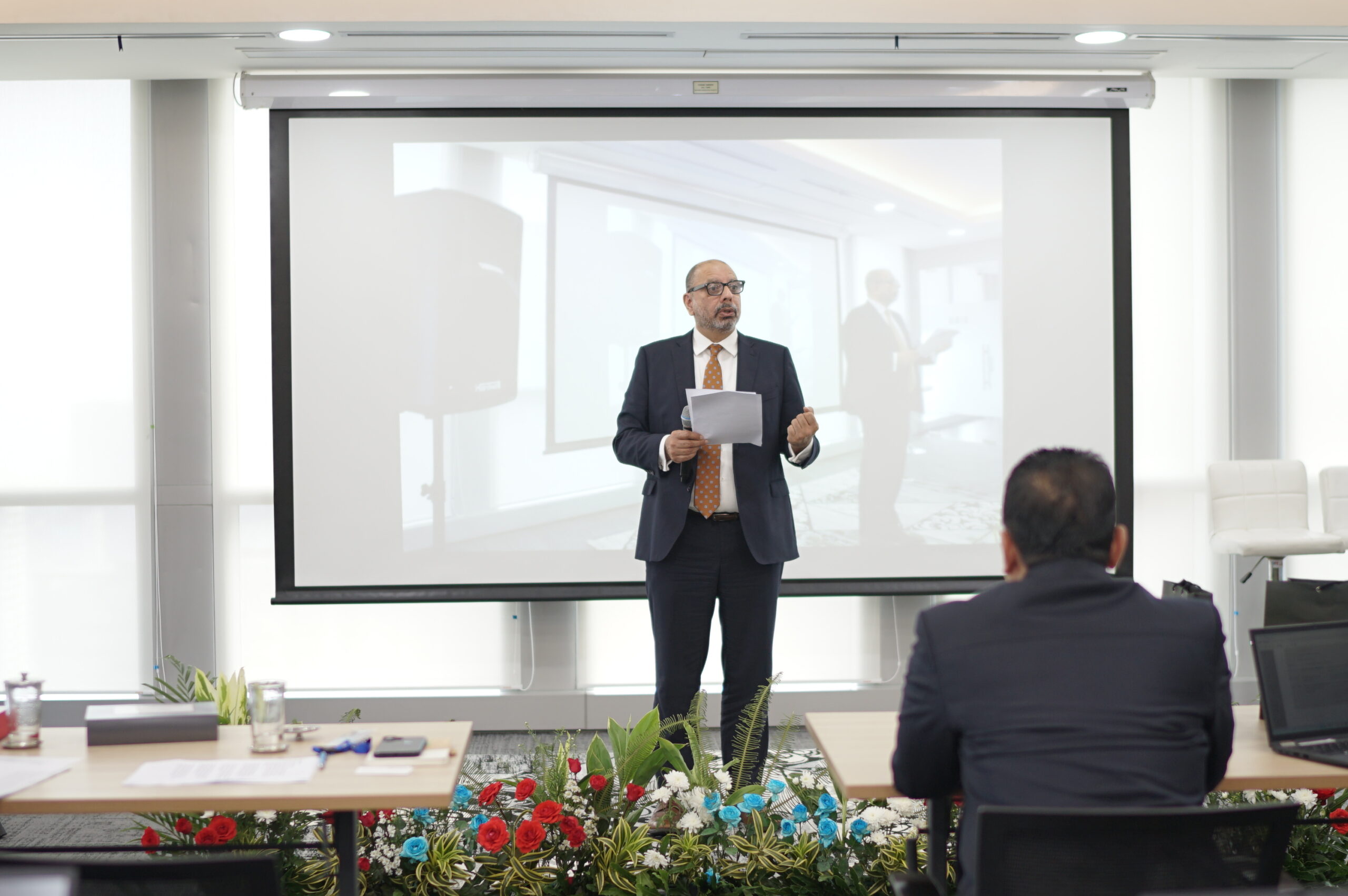 |
Photo 2. Suripno, Vice President (VP) of Sustainability Strategy at Pertamina (Persero) and Zubin Bamji, GFMR Manager at the World Bank Group
Suripno, Vice President (VP) of Sustainability Strategy at Pertamina (Persero), commenced the launching with welcoming remarks on behalf of the ASCOPE Secretary in Charge (ASIC). He highlighted the oil and gas sector’s potential for methane emissions reduction, noting it as one of the most impactful ways to slow global warming. Hence, this roadmap serves as a framework for ASEAN Member States (AMS) that can be integrated into their national emission reduction plans. He also expressed gratitude to ACE and World Bank for their support and contribution to the roadmap.
Zubin Bamji, GFMR Manager, Energy and Extractives Global Practice of the World Bank Group, also delivered opening remarks and highlighted that ASEAN’s oil and gas sector is at a pivotal juncture. In this roadmap, it is highlighted that an agreed-upon ASEAN methane intensity target would be unprecedented, setting a strong example for both the region and the world. Establishing this target would not only enhance regional cooperation but also attract international support and investment. Zubin reiterated that the World Bank is committed to working with all stakeholders, with unwavering support for the shared goal of addressing methane emissions.
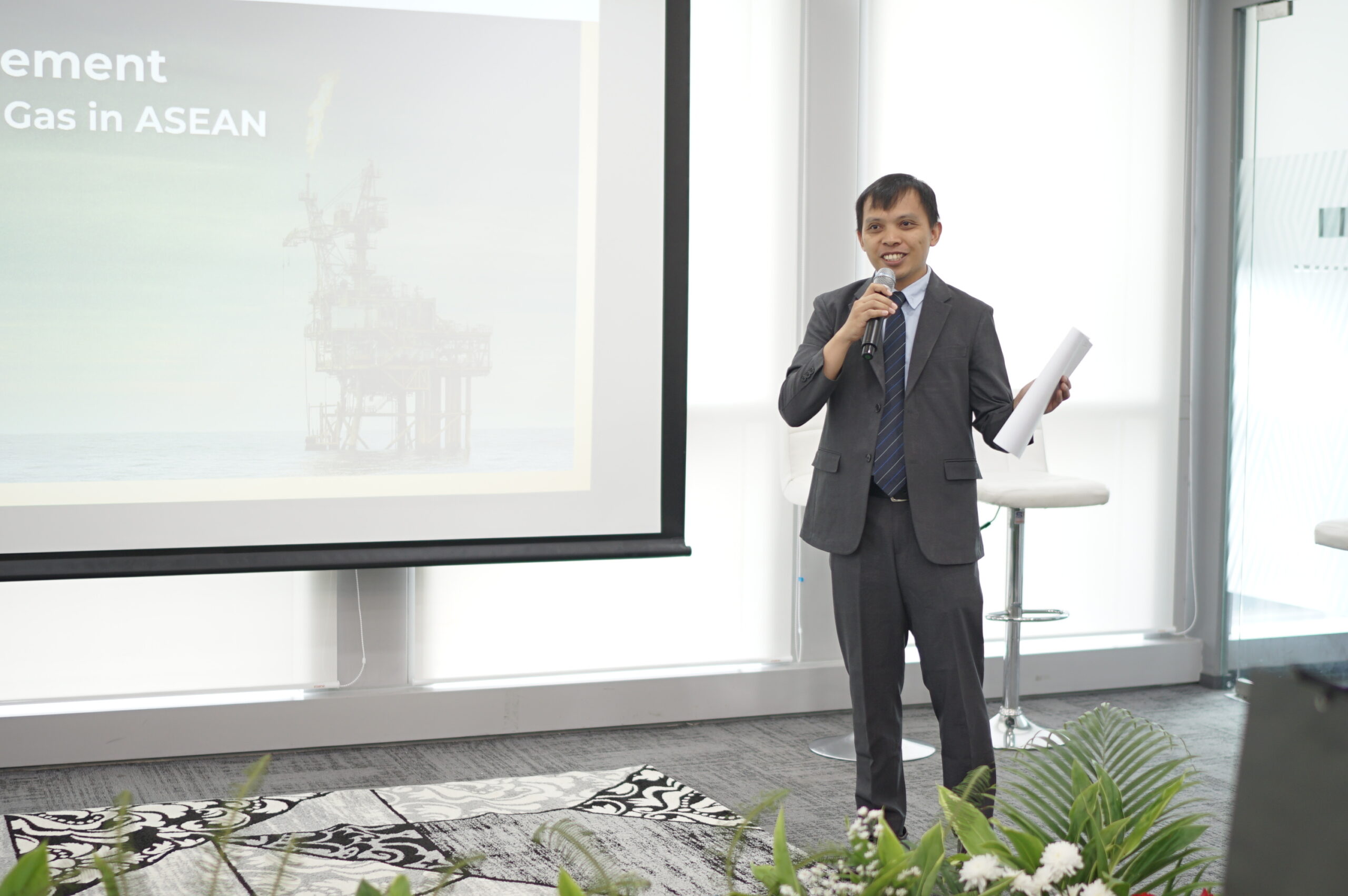 |
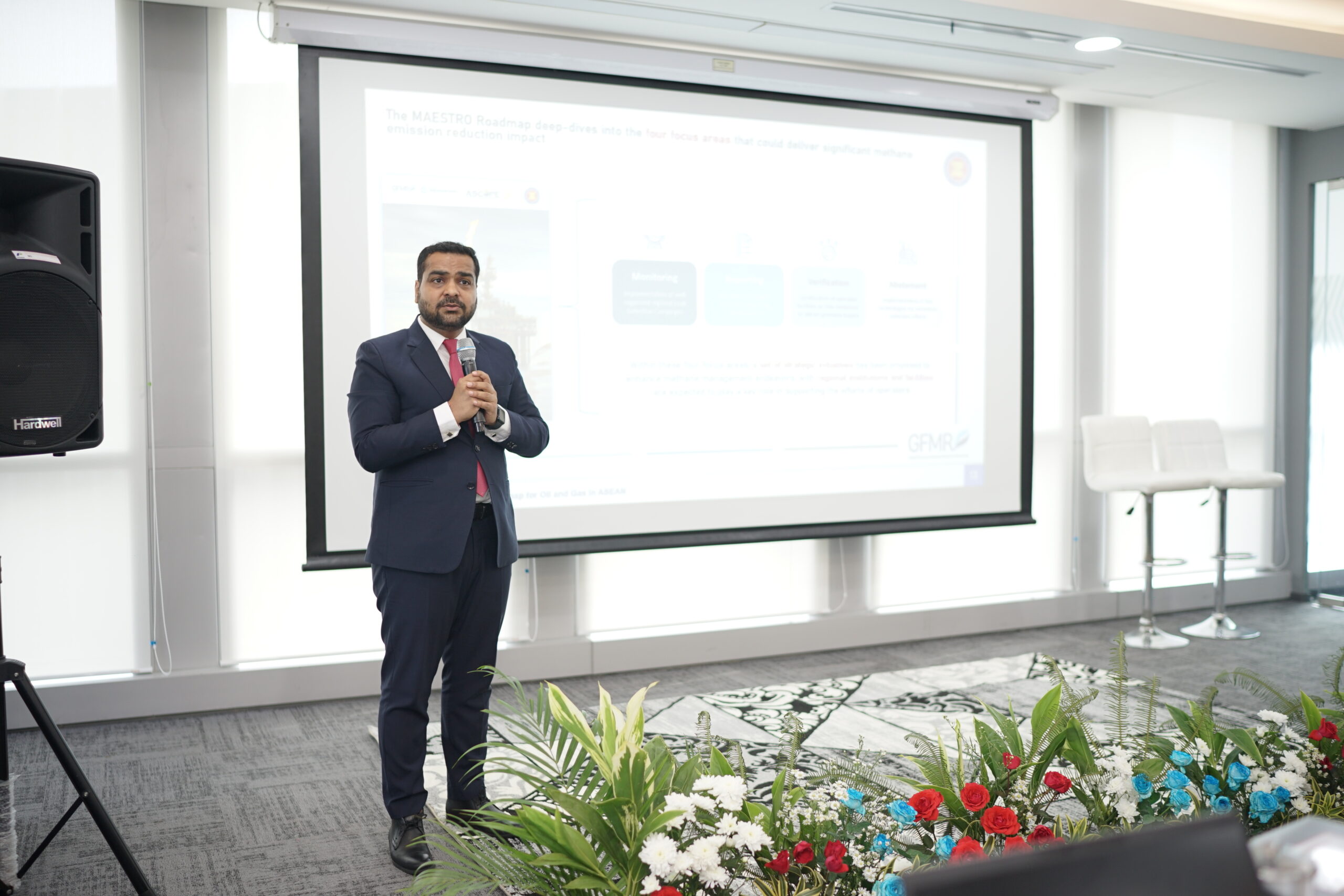 |
Photo 3. Suwanto, Manager of Fossil Fuel, Hydrocarbon and Minerals (FOM) Department at ACE, outlining the contents of the report and Harshit Agrawal, Senior Gas Specialist of the World Bank
Suwanto, Manager of Fossil Fuel, Hydrocarbon and Minerals (FOM) Department at ACE, delivered a scene-setting presentation underscoring the urgent need to reduce methane emissions. He referred to the 8th ASEAN Energy Outlook (AEO8) in emphasising ASEAN’s rising energy demand, noting that fossil fuel is still likely to dominate ASEAN’s energy mix in the coming years. Oil specifically will support the transport sector, while gas is considered a transitional fuel due to its cleanliness amongst other fossil fuels. Suwanto then underscored the lack of specific methane targets and guidelines present in the ASEAN region, with existing goals being non-binding or not sector specific. Hence, he stressed that the roadmap could help AMS in acting as a guide for setting more robust regional targets in methane emission reduction and identifying challenges.
The presentation was then continued by Harshit Agrawal, Senior Gas Specialist of the World Bank, who discussed focus areas in methane management. He covered technical aspects of reporting and monitoring of methane abatement projects, noting that active involvement in execution and monitoring is a necessity for facilities to successfully carry out programmes. Moreover, Harshit also underscored that reporting and addressing methane emissions is a reliable way for companies to demonstrate their progress in meeting methane reduction targets. This signifies a company’s commitment to the Paris Agreement and Global Methane Pledge goals, while showcasing operational efficiency and asset integrity.
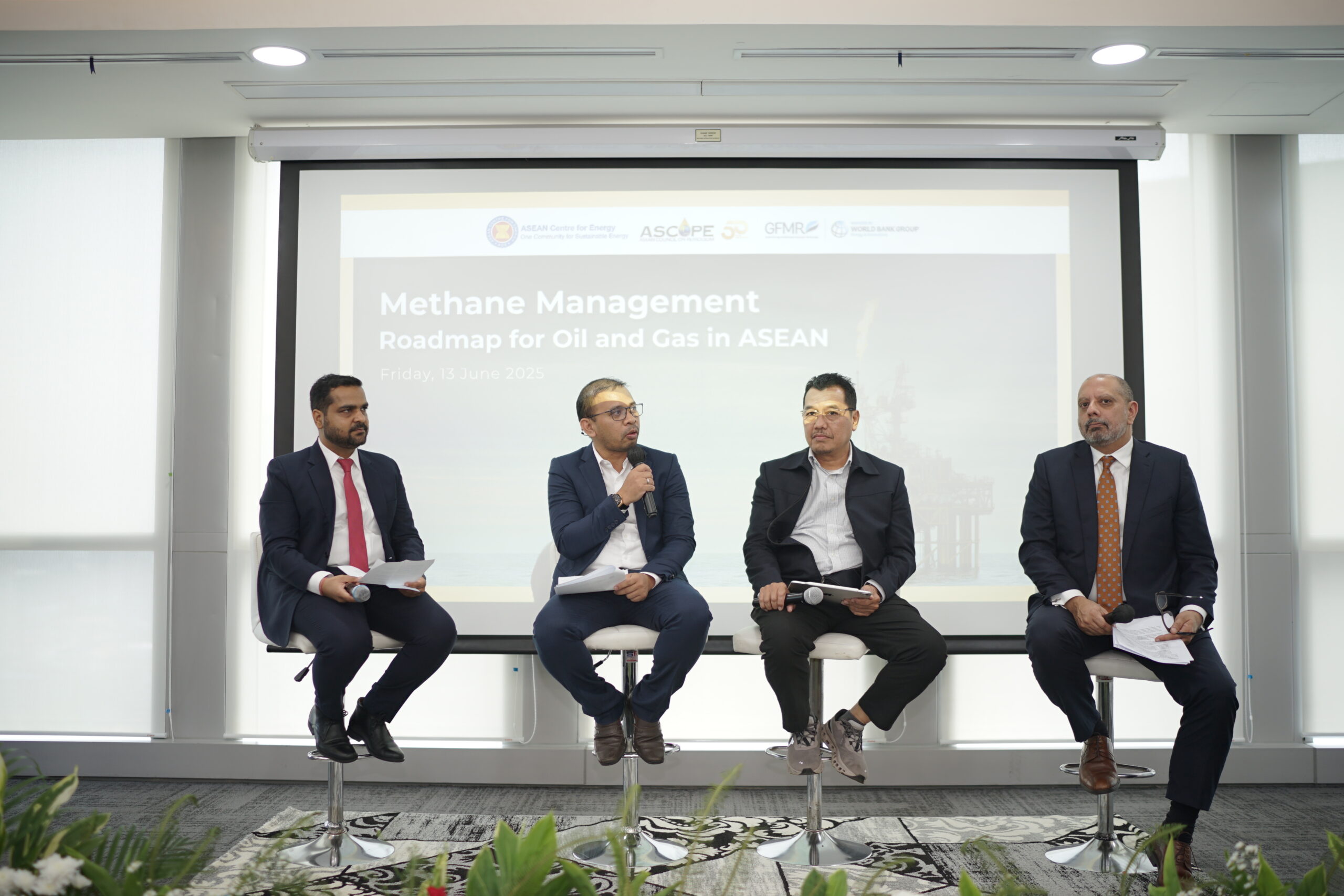
Photo 4. (Left to right) Harshit Agrawal, Senior Gas Specialist of the World Bank, Beni Suryadi, Senior Manager of APAEC & Strategic Department of ACE, Suripno, VP of Sustainability Strategy at Pertamina (Persero), and Zubin Bamji, GFMR Manager, Energy and Extractives Global Practice of World Bank, during the panel discussion.
Following the presentation, the event continued with a panel discussion moderated by Harshit to discuss methane project management and funding methane projects in ASEAN. This discussion session featured insights from Suripno, Zubin, and Beni, Senior Manager of the ASEAN Plan of Action for Energy Cooperation (APAEC) & Strategic Partnership Department at ACE.
During the discussion, Beni highlighted that by having a baseline data, ASEAN will gain a clearer understanding of methane emissions from its oil and gas sector. This foundational step will enable more targeted engagement with operators to identify key requirements and collaborate with certification entities to assess the sustainability of operators’ practices. Additionally, on the topic of methane project management, efforts should be made to connect operators with local technology providers and, where necessary, accredit local auditors to ensure effective monitoring and compliance with methane reduction targets. These actions are crucial to fostering a robust framework for methane emissions management and enhancing regional sustainability efforts.
Meanwhile, Zubin highlighted that the World Bank works to capture, advocate, and share success stories and challenges on methane reduction from around the world. He noted that methane reduction in oil and gas sector is relatively new, with much to learn as stakeholders and countries continue to explore the most effective approaches. While regulations are in place, significant progress is required. He emphasised that a regional approach, particularly within ASEAN, offers valuable opportunities for sharing best practices, which will be a key component in advancing collaborative efforts in methane reduction across the region.
Lastly, Suripno discussed the unique challenges and opportunities faced by ASEAN in methane leak detection and repair campaigns. He emphasised the importance of building capacity and developing a robust ecosystem within the region to effectively address methane measurement and abatement. These efforts are critical in advancing ASEAN’s ability to tackle methane emissions and contribute to global climate goals.
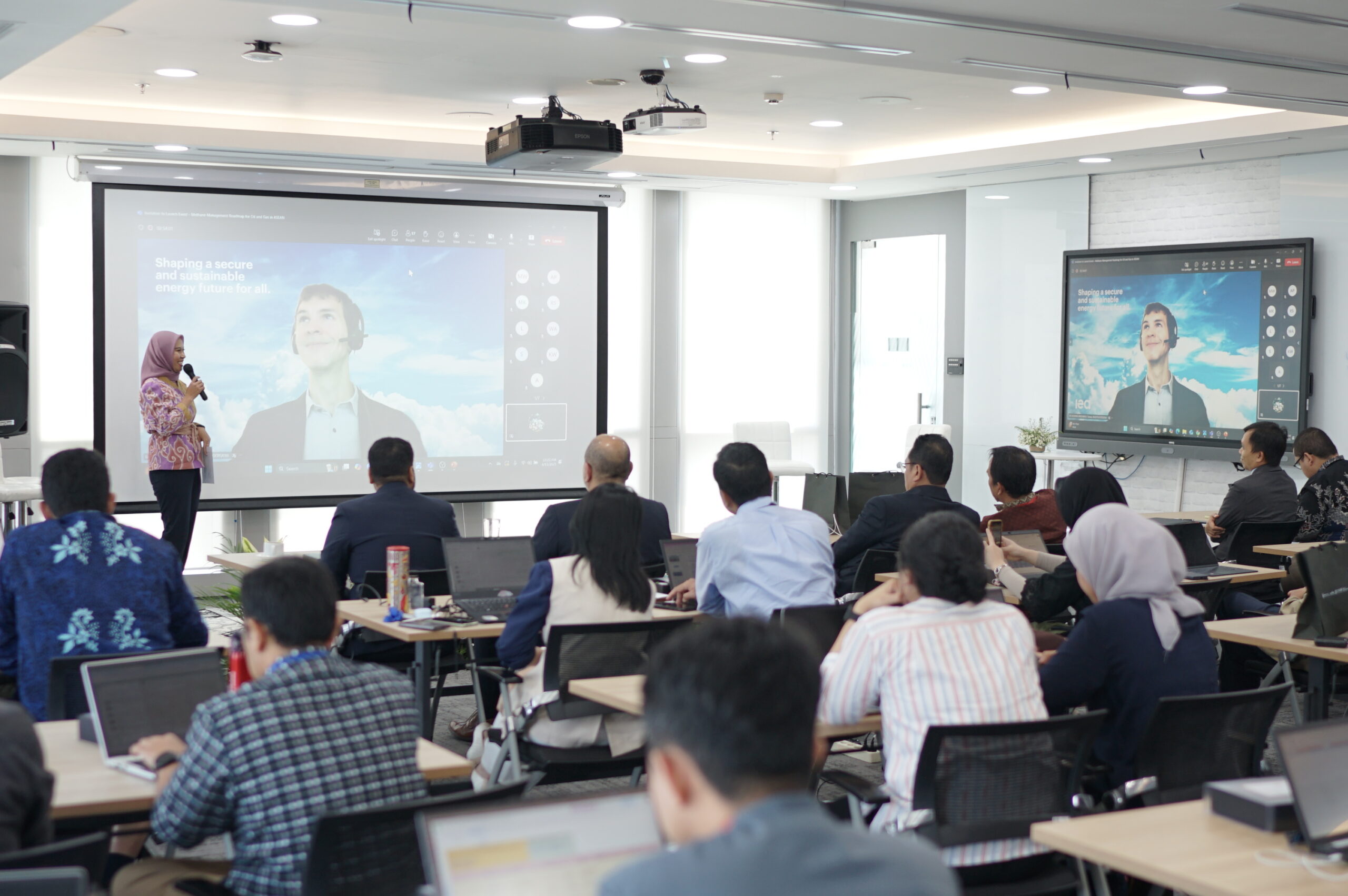
Photo 5. Tomas Bredariol of the International Energy Agency (IEA) delivering a presentation during the event.
To close the discussion, Tomas Bredariol from the International Energy Agency (IEA) presented the “Global Methane Tracker 2025,” he highlighted that reducing methane emissions could improve energy security by facilitating the increased flow of national gas to markets, with current pledges covering approximately 80% of global oil and gas production and that more needs to be done considering the persistently high methane emissions and their climate impact.
The MAESTRO Report was developed to outline strategies for reducing methane emissions from the oil and gas sector across AMS, focusing on four key areas: monitoring, reporting, verification, and cost-effective abatement strategies. With major emitters including Indonesia, Malaysia, and Thailand, the roadmap supports ASEAN’s climate goals by proposing clear and practical actions for operators and policymakers to strengthen mitigation efforts and foster a more sustainable, low-emission, and economically resilient energy system.
Read the full report here.
